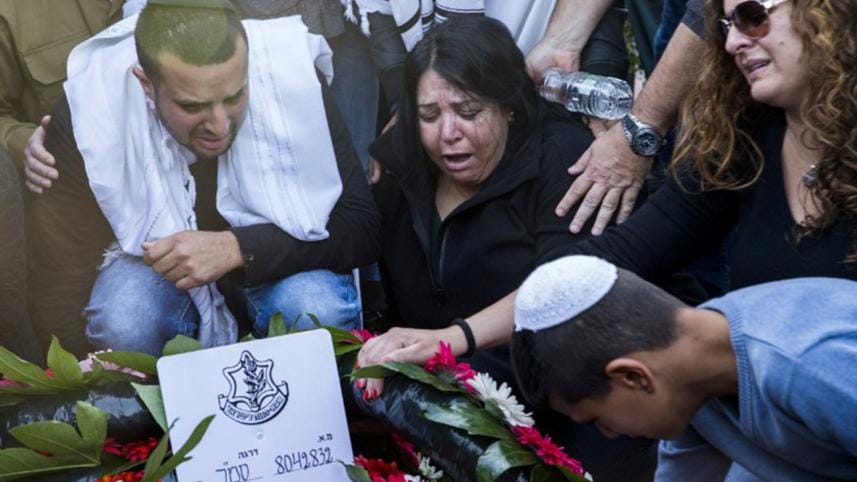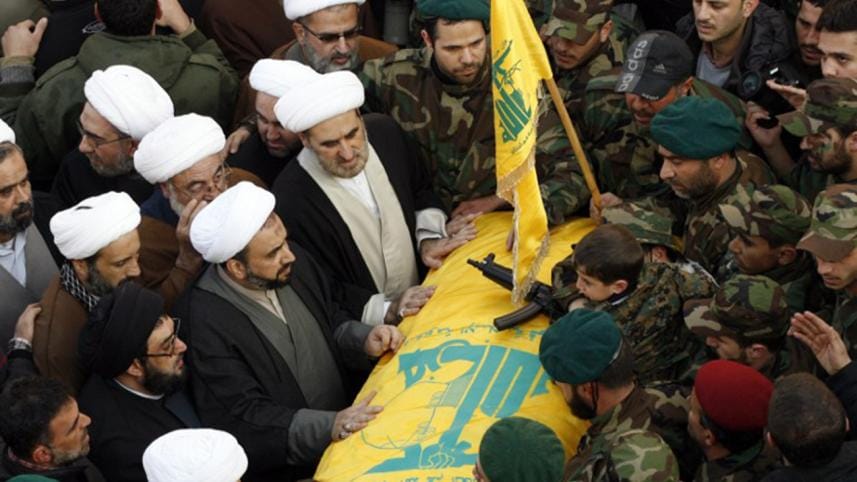Israel expects high civilian casualties

According to Israeli military assessment, Israel could suffer hundreds of civilian dead and damage to its vital infrastructure from Hezbollah rockets if it fights another war with the Iranian-backed Lebanese guerrilla group, reports Reuters.
The scenario, published by Israeli media on Wednesday, reflected concern among security planners that since the last Lebanon war, in 2006, Hezbollah has expanded its rocket arsenal and gained battle experience helping Damascus fight the insurgency in Syria.
The publication of the assessments could help build a case for more investment in Israeli civil defences and in U.S.-backed rocket interceptors like Iron Dome, which has proven effective outside Gaza, and the longer-range David's Sling, which is in final testing stages.
According to the military assessments, between 1,000 and 1,500 rockets could hit Israel daily in the next full-blown conflict, killing hundreds of people and potentially paralysing key installations like airports, sea ports and power stations.
The 2006 war killed around 160 Israelis, most of them troops fighting Hezbollah inside Lebanon, while 1,200 people in Lebanon, mostly civilians, died in Israel's military barrages.
Another conflict could see Israeli attacks 15 times more devastating for Lebanon, Israel's air force chief, Major-General Amir Eshel, said in a speech last year aimed at keeping Hezbollah in check.
While not making details public, Hezbollah says its military capabilities have been significantly boosted since 2006. Neither side appears keen on resuming hostilities. The restraint has been tested, however, by occasional flare-ups in fighting.

Worried that Hezbollah was entrenching forces on its Syrian front, Israel carried out a Jan. 18 air strike that killed six of the Lebanese guerrillas - one of them a field commander - and an Iranian general. Hezbollah retaliated with a cross-border guided-missile salvo that killed two Israeli troops.
Since its July-August war with Palestinian Hamas guerrillas, where eight Iron Dome batteries helped fend off rockets from the Gaza Strip, Israel has been trying to improve those interceptors. It has also accelerated the development of David's Sling, a system designed to shoot down the more potent missiles of Hezbollah, Syria and Iran, with hopes of deploying it by 2016.
Israeli officials last month asked U.S. lawmakers for $317 million in additional funding for David's Sling and other Israeli missile defence programmes, on top of $158 million in funding already requested by the Obama administration in its fiscal 2016 budget.
A group of 32 U.S. senators last week urged fellow lawmakers to fully meet Israel's missile defence funding request. The issue was expected to be on the agenda of John Boehner, speaker of the U.S. House of Representatives, who arrived in Israel on Tuesday at the head of a delegation of Republican lawmakers.



 For all latest news, follow The Daily Star's Google News channel.
For all latest news, follow The Daily Star's Google News channel.
Comments